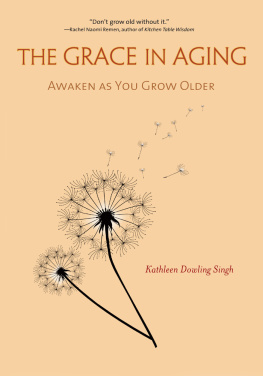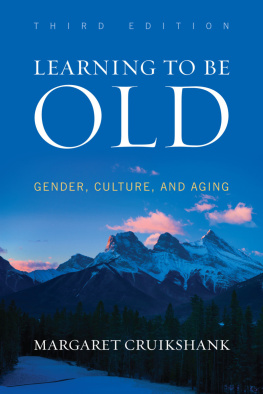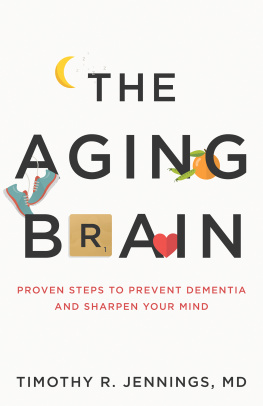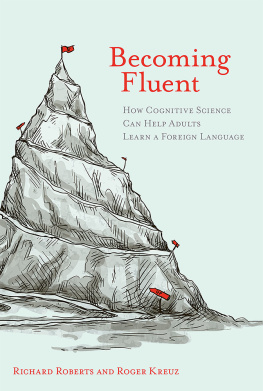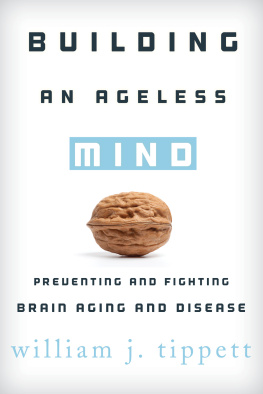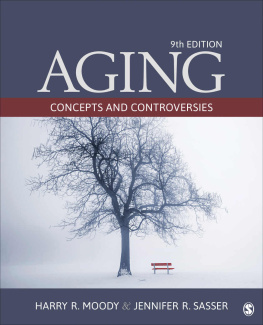Roger Kreuz - Changing Minds: How Aging Affects Language and How Language Affects Aging
Here you can read online Roger Kreuz - Changing Minds: How Aging Affects Language and How Language Affects Aging full text of the book (entire story) in english for free. Download pdf and epub, get meaning, cover and reviews about this ebook. publisher: MIT Press, genre: Children. Description of the work, (preface) as well as reviews are available. Best literature library LitArk.com created for fans of good reading and offers a wide selection of genres:
Romance novel
Science fiction
Adventure
Detective
Science
History
Home and family
Prose
Art
Politics
Computer
Non-fiction
Religion
Business
Children
Humor
Choose a favorite category and find really read worthwhile books. Enjoy immersion in the world of imagination, feel the emotions of the characters or learn something new for yourself, make an fascinating discovery.

- Book:Changing Minds: How Aging Affects Language and How Language Affects Aging
- Author:
- Publisher:MIT Press
- Genre:
- Rating:4 / 5
- Favourites:Add to favourites
- Your mark:
- 80
- 1
- 2
- 3
- 4
- 5
Changing Minds: How Aging Affects Language and How Language Affects Aging: summary, description and annotation
We offer to read an annotation, description, summary or preface (depends on what the author of the book "Changing Minds: How Aging Affects Language and How Language Affects Aging" wrote himself). If you haven't found the necessary information about the book — write in the comments, we will try to find it.
Roger Kreuz: author's other books
Who wrote Changing Minds: How Aging Affects Language and How Language Affects Aging? Find out the surname, the name of the author of the book and a list of all author's works by series.
Changing Minds: How Aging Affects Language and How Language Affects Aging — read online for free the complete book (whole text) full work
Below is the text of the book, divided by pages. System saving the place of the last page read, allows you to conveniently read the book "Changing Minds: How Aging Affects Language and How Language Affects Aging" online for free, without having to search again every time where you left off. Put a bookmark, and you can go to the page where you finished reading at any time.
Font size:
Interval:
Bookmark:
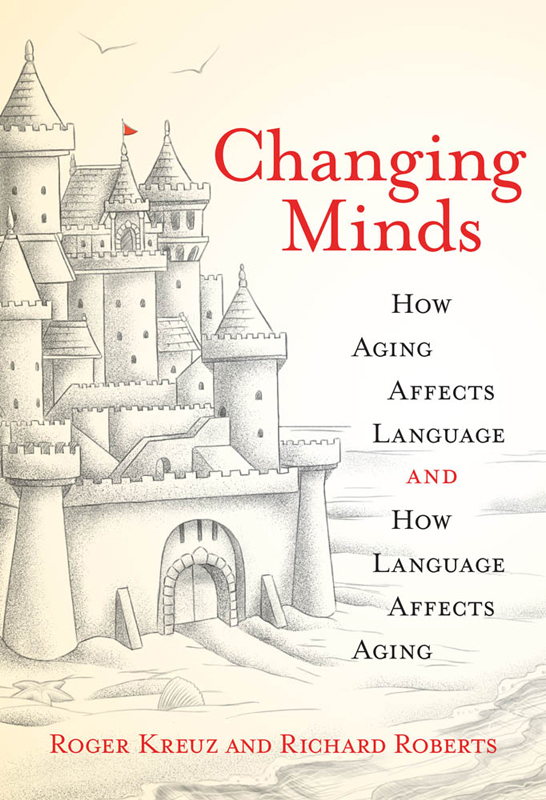
Changing Minds
How Aging Affects Language and How Language Affects Aging
Roger Kreuz and Richard Roberts
illustrations by Enkhtur Bayarsaikhan
The MIT Press
Cambridge, Massachusetts
London, England
2019 The Massachusetts Institute of Technology
All rights reserved. No part of this book may be reproduced in any form by any electronic or mechanical means (including photocopying, recording, or information storage and retrieval) without permission in writing from the publisher.
This book was set in Stone Serif by Westchester Publishing Services. Printed and bound in the United States of America.
Library of Congress Cataloging-in-Publication Data
Names: Kreuz, Roger J., author. | Roberts, Richard (Richard Miller), 1959author.
Title: Changing minds : how aging affects language and how language affects aging / Roger Kreuz and Richard Roberts.
Description: Cambridge, MA : MIT Press, [2019] | Includes bibliographical references and index.
Identifiers: LCCN 2018046136 | ISBN 9780262042598 (hardcover : alk. paper)
Subjects: LCSH: Older peopleCommunication. | Language and languagesAge differences. | Language disorders in old age. | Psycholinguistics.
Classification: LCC BF724.85.I57 K74 2019 | DDC 401/.9dc23 LC record available at https://lccn.loc.gov/2018046136
d_r0
Siblings are the only relatives, and perhaps the only people youll ever know, who are with you through the entire arc of your life.
Jeffrey Kluger, Salon (2011)
This book is dedicated to our brothers and sisters.
Roger would like to thank Tori Tardugno, whose efficiency and professionalism provided him with the time he needed for working on this project. He is also grateful to Tom Nenon for his support and encouragement.
Richard would like to thank Jennifer Berne, who brought his understanding of the topics we discuss to a new level by pointing out the symmetry between the influences of aging on language and language on aging. This insight is reflected in the subtitle of the book. Jeff Newbern and Mark Seaman graciously opened up their homes, hearts, and minds. Richard always appreciates Greg Morgans ability and willingness to explain complex concepts in terms even Richard can understand. And to Joyce Bender and Mary Brougher, who bring hope and joy wherever they golead on!
On Okinawa, Richard would like to thank Joel Ehrendreich, Aya Toyama, Makiko Tasato, and Shina Miyagi for their willingness to give him the time needed to complete this book. They keep work from feeling like work. And thanks also go to Anup Patel and the team at the Fogelman Executive Center for their hospitality.
Both Roger and Richard thank Phil Laughlin for his faith in this project and his continued support. We appreciate the hard work of everyone at the MIT Press, including Judy Feldmann, Molly Seamans, Susan Clark, and Stephanie Cohen. Thanks also to copy editor Bill Henry. Special thanks go to the Benjamin L. Hooks Institute for Social Change, which generously provided space for us to work. Three anonymous reviewers provided helpful comments at the beginning of the project. We are particularly thankful to Susan Fitzgerald, Gina Caucci, and Alex Johnson, whose keen eyes kept a number of infelicities from finding their way into the finished work.
Because Richard works for the US Department of State, he would like to make clear that the contents of the book are his opinions and not those of the US government.
Roger Kreuz and Richard Roberts
Memphis, Tennessee
July 2018
A common metaphor for thinking about ones life is to conceptualize it as a journey. One of the companions we have on this journey is our native language. We acquire it, seemingly without effort, in infancy and early childhood. And in some sense, we acquire it a second time during formal education as we learn to read and to write. During these years of schooling, though we already possess the body, we learn about our languages skeleton and its connective tissueits grammar and rhetorical styles. Our vocabularies become larger. We discover the great heights to which language can soar in the prose, poetry, and plays of our native tongue.
And then what? For most people, that seems to be end of the story. We may choose to study other languages, but we typically do so in ways that are fundamentally different from how we acquired our native language. And our native tongue itself may seem like a finished product once our schooling ends. Over time, we will learn additional vocabulary and strive to become better writers, but we typically dont spend a lot of time thinking about it. Language is simply one of many skills that we might possess, like being able to juggle or to play the piano. But most jugglers dont move on to study Newtons laws of motion, and most pianists dont feel compelled to study compositional counterpoint or the history of piano building. For most, juggling, playing music, or using language is simply a means to an end and not an end in itself.
Contrary to popular belief, the consensus of researchers who study cognitive aging is that language systems remain largely stable across the lifespan. But does this mean that language is unaffected by aging? Language is a complex phenomenon that relies on other cognitive processes, such as perception and memory. Anyone who struggles to recall someones name is reminded of languages dependence on memory. Furthermore, as we strain to hear our partner in a noisy restaurant or to read the menu, languages dependence on perception becomes clear as well.
It may be helpful to introduce an analogy at this point. Imagine that someone has built an elaborate sand castle on the beach. The castle itself might be impressive, but sand castles are only as strong as their base. And as the tide begins to roll in, the foundations of the castle are threatened. The lapping waves will hollow out its underpinnings, and after a time, the elaborate towers and arches may perch precariously on an increasingly eroding base. Nevertheless, the castle may still stand, even though part of its sandy foundation has been washed away.
So how does language hold up as the tide of aging wears away at the foundation of perception and memory? Does a changing mind foreshadow the decline of our linguistic abilities? As it turns out, language, like a well-built sand castle, can display surprising resilience in the face of cognitive disruption. The complete story of language change in adulthood is one of decline, adaptation, resilience, and even enhancement.
These seemingly contradictory outcomes are easier to understand if we conceptualize language not as a unitary phenomenon but as a set of interacting components. Viewed broadly, language consists of four major domains: listening, speaking, reading, and writing. Keep in mind that each domain is part of one integrated, multicomponent system. The underdevelopment of one domain for any individual does not mean that he or she lacks linguistic ability. For example, throughout the world, many people never learn to read or write, but we wouldnt characterize those individuals as not having language. In fact, on the evolutionary timescale, the entire human species was illiterate until relatively recently. In addition, blind and low-vision individuals experience the written word but do so through other senses, like touch and hearing. Likewise, Sign languages are as expressive and as rich as any spoken language.
Font size:
Interval:
Bookmark:
Similar books «Changing Minds: How Aging Affects Language and How Language Affects Aging»
Look at similar books to Changing Minds: How Aging Affects Language and How Language Affects Aging. We have selected literature similar in name and meaning in the hope of providing readers with more options to find new, interesting, not yet read works.
Discussion, reviews of the book Changing Minds: How Aging Affects Language and How Language Affects Aging and just readers' own opinions. Leave your comments, write what you think about the work, its meaning or the main characters. Specify what exactly you liked and what you didn't like, and why you think so.


